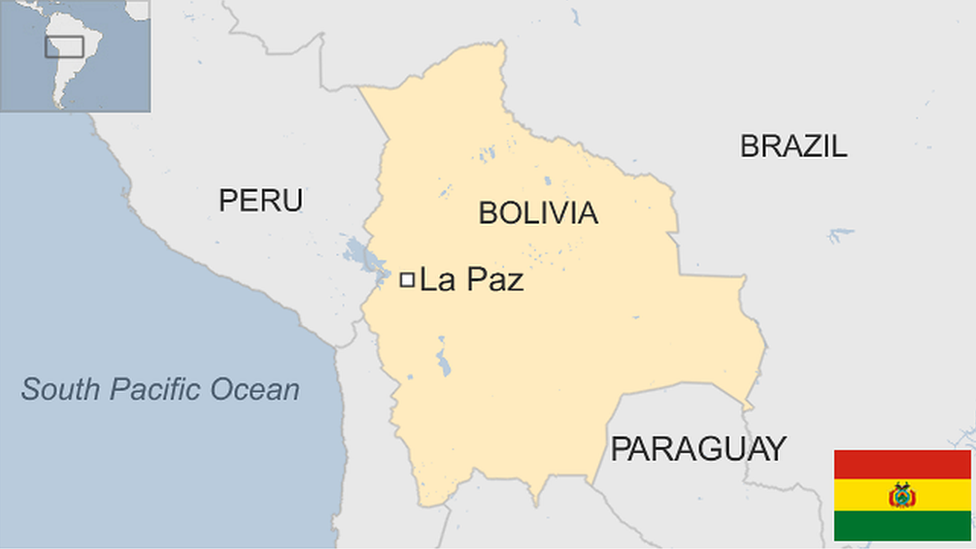Bolivia governing party challenges Morales' term limit
- Published
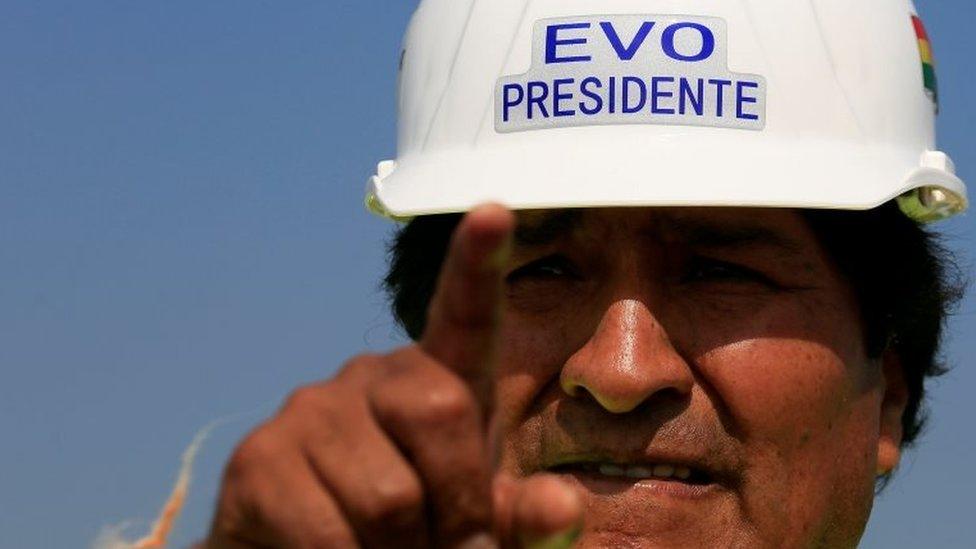
Evo Morales wants to stand again in the 2019 presidential election
Lawmakers from Bolivia's governing Movement Towards Socialism party (MAS) have asked the Constitutional Court to allow President Evo Morales to run for a fourth term, despite the constitution preventing him from doing so.
The move comes a year and a half after Bolivians voted against changing the constitution to remove term limits.
At the time, Mr Morales said he would respect the referendum results.
Mr Morales has been in power since January 2006.

Evo Morales in office

January 2006: Starts first term as president
January 2009: Bolivians approve new constitution in a referendum
December 2009: Mr Morales wins second term by a landslide in early presidential election
April 2013: Constitutional court rules Mr Morales can stand in the 2014 election despite the 2009 constitution limiting presidents to two consecutive terms. The court argues that his first term should not count because it took place before the constitution came into force
October 2014: Morales wins third term in office
February 2016: Bolivians vote in a referendum against lifting presidential term limits
September 2017: Governing party lawmakers ask the constitutional court to scrap term limits

Lawmakers from the governing party and two from the Democratic Unity party backed the request to declare the articles on term limits in the constitution "inapplicable".
They argued that imposing term limits conflicted with the constitutional right of every Bolivian to "participate freely in the formation, exercise and control of political power".
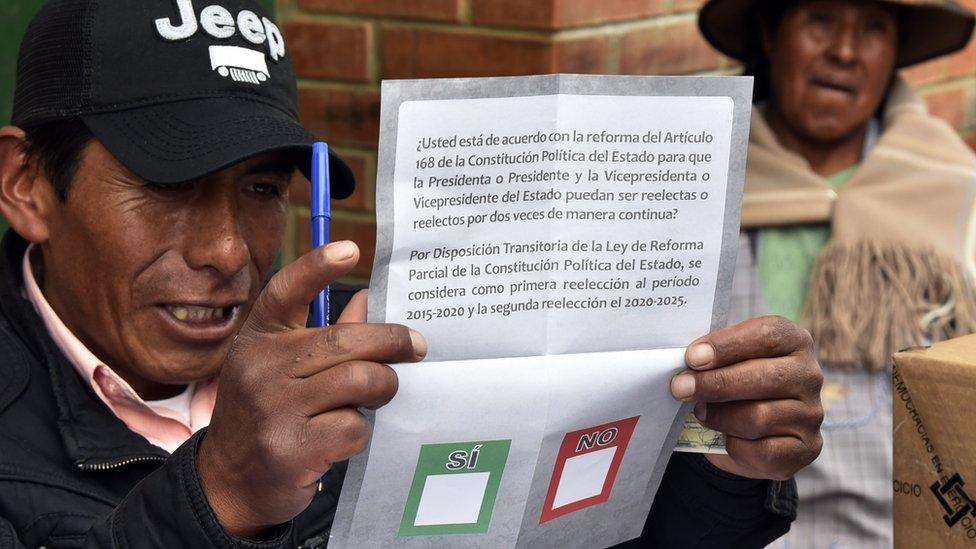
In February 2016, Bolivians narrowly rejected a proposal to lift term limits
They also want term limits for other political posts such as governors, mayors and lawmakers to be scrapped.
The constitutional court has 15 days to accept or reject the request, and another 45 to come to a decision.
If Mr Morales were to be allowed to run again in 2019 and if he were to win, he would be in power until 2025.
Many Bolivians who voted "no" in the 2016 referendum on term limits said they did not want to see Mr Morales in power for 19 years.
While Mr Morales said at the time that he would respect the outcome of the referendum, he has since stated that he believes the result was down to a "dirty war" launched against him.
Allegations surfaced shortly before the referendum accusing Mr Morales of using his influence to favour a Chinese construction firm in Bolivia, which he denied.
- Published17 May 2016
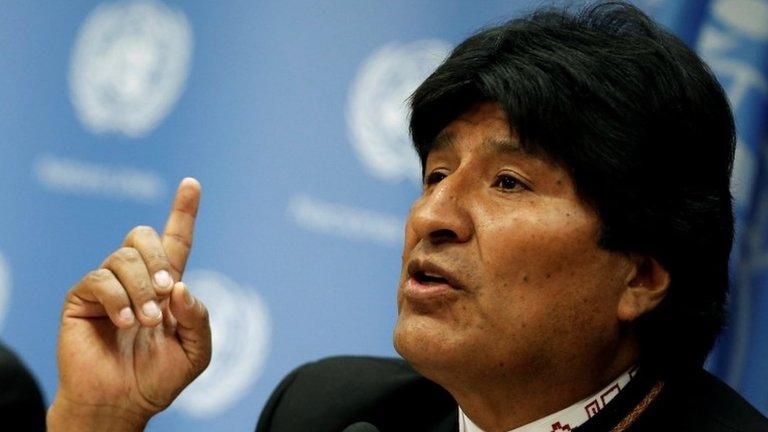
- Published24 February 2016
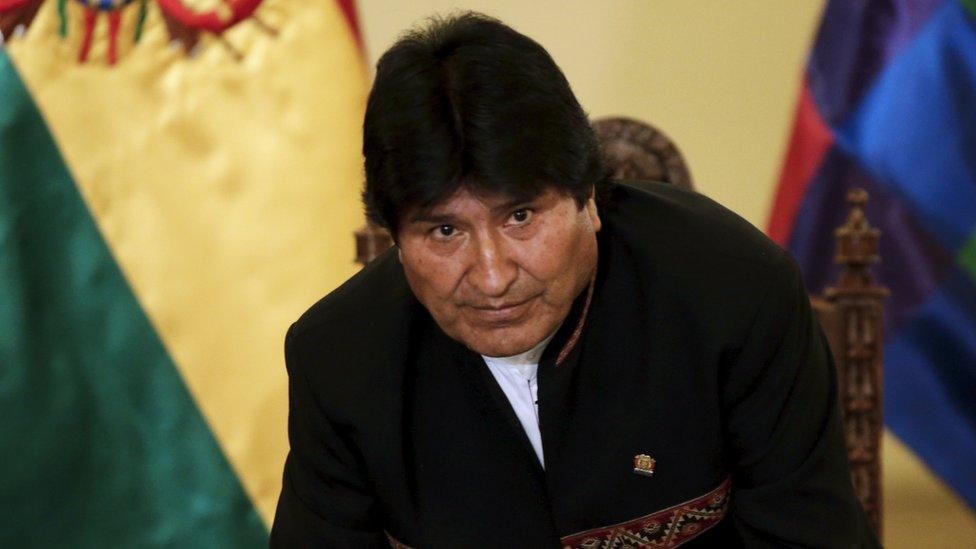
- Published7 February 2023
